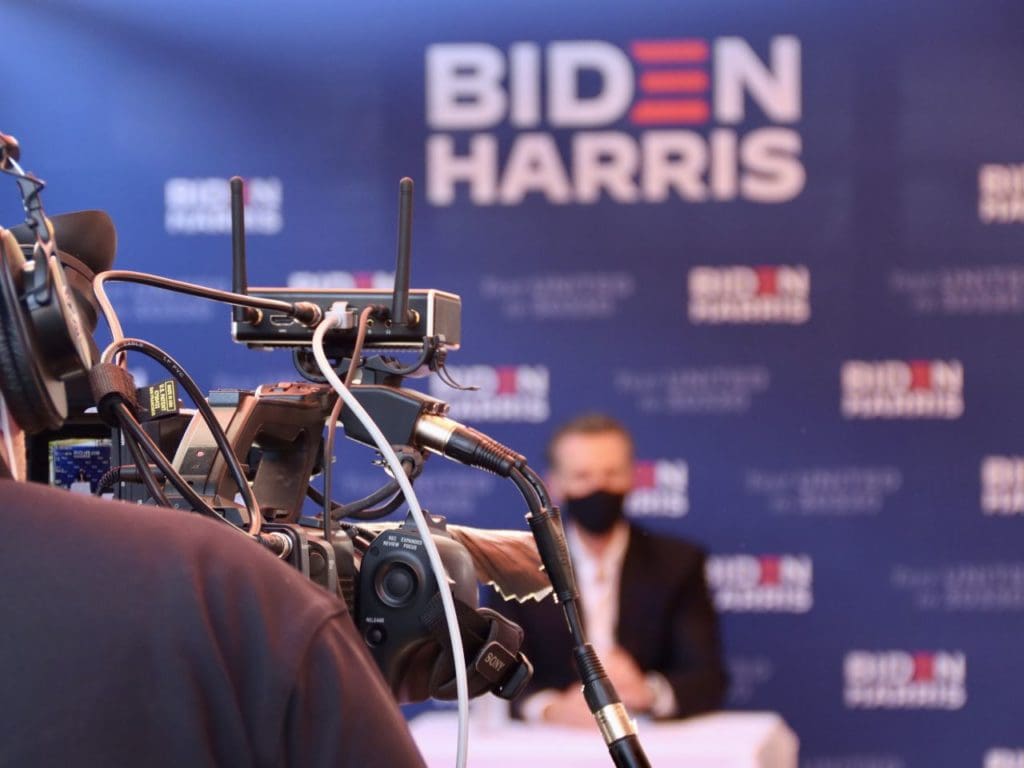Point-Counterpoint Part II: Biden supporter talks Trump indictment and 2024 presidential election
I used to live in Arlington and work in Washington, D.C. I have many friends, acquaintances, and former colleagues who live in the metro area of the U.S. capital. On the day Donald Trump was inaugurated as president, some female friends of mine were afraid to leave their homes. Trump had said incredibly vulgar things about grabbing women’s private parts. When he won the presidency, people who were emboldened by his conduct gathered in the capital for his inauguration.
- 3 years ago
August 19, 2023

SHENANDOAH VALLEY, Virginia ꟷ On Election Day 2020, I braved my mild phobia of calling strangers and signed up for a “Get Out The Vote” calling bank for the U.S. Presidency. I woke up an hour or two early, sat in my home office, and called the numbers on the list. I needed to contribute somehow to the outcome beyond just showing up at the polls and casting a vote. The more dire we consider the consequences of inaction, the more we owe it to ourselves and everyone else to do something.
Read Point-Counterpoint Part I: Trump supporter talks indictment and 2024 presidential election
I will likely do it again in 2024. On that Tuesday, after making my calls, I will most certainly be working. I will try very hard not to pay attention to anything until the polls close. Around 7:00 or 8:00 I will start tuning into the results. Democracy is about community, and I enjoy sharing the experience of election night with people who are like-minded on some level, win or lose. With that in mind, I may host a small election gathering, as I have in the past.
Vulgarity and lack of morals leave many feeling unsafe
I used to live in Arlington and work in Washington, D.C. I have many friends, acquaintances, and former colleagues who live in the metro area of the U.S. capital. On the day Donald Trump was inaugurated as president, some female friends of mine were afraid to leave their homes. Trump had said incredibly vulgar things about grabbing women’s private parts. When he won the presidency, people who were emboldened by his conduct gathered in the capital for his inauguration.
The issues we face in America today reflect a symmetry and an asymmetry. The symmetry is, no single politician’s approval rating gets very high anymore, regardless of who wins. Our country faces decades-old problems around public health, racial justice, the economy, and equity for LGBTQ people. When government cannot intervene meaningfully in a way that improves peoples’ lives, it leaves citizens disillusioned.
The asymmetry America faces is the personal devotion and attachment Trump’s supporters show him. It exists nowhere else in the political spectrum. When I spend time in left-leaning online communities, rarely does anyone express love or devotion to Biden. I don’t see people wearing Biden hats and displaying Biden flags in their front yards. That difference is not because Trump is more popular. Biden defeated Trump in the popular and the electoral vote.
The difference is some people will support their guy no matter what. Trump has the “no matter what” group locked down. People’s attachment to him seems less about the value system he brought to the office of the president, and more about some kind of personal identification. They like his attitude. They like that he pisses off the people they want to piss off, that he has money and lives a fancy lifestyle, and they hope to share in it somehow by showing their loyalty.
Racism, antisemitism, and violence, yet Trump’s popularity grows
I happened to be visiting with people close to me when the Unite the Right white supremacist rally took place in Charlottesville in August 2017, not far from us. While I’m a left-leaning independent, most of the people I was with that day were staunchly Republican. As we heard the news reports coming in about the riots, I felt both shock and disbelief.
[The rally included members of the alt-right, neo-Confederates, neo-fascists, white nationalists, neo-Nazis, KIansmen, and far-right militias with the goal to unify the American white-nationalist movement. Some chanted racist and antisemitic slogans and carried weapons. During the second day, clashes erupted between white supremacists and counter-protesters. Self-identified white supremacist James Alex Fields Jr. deliberately rammed his car into a crowd of counter-protesters. He killed one and injured 35.]
In the streets in Charlottesville, people chanted, “Jews will not replace us.” Yet Trump claimed there were good people on both sides. What shocked me more was that some of the people I visited with were flatly denying any of this could be happening. Sometime later I realized that some people who claim to be Christian were continuing to support a president who emboldened hate by being unwilling to condemn it. The days and weeks after the riots felt jaw-dropping on multiple levels. I thought, “You’re willing to let him get away with anything because he’s your guy. It’s like he’s your football team. It’s ride or die for you.”
We witnessed something similar on January 6, 2021, when Trump actively exhorted people to storm the Capitol, and still the party stands behind him. I often wonder, “What could this candidate do to lose the support of the people who still back him, after all that’s happened? What do we do about the voter who has no red line?”
Many paths still exist to an election that is not competitive
On Election Day in 2024, if it’s Trump versus Biden, my feelings may depend on the specifics. No law I know of prevents Trump from standing for an election even if he’s convicted of the felony charges he’s currently facing. Yet recently, I heard that some members of the Federalist Society, a conservative organization, have stated publicly that Trump could be ineligible per clauses of the 14th Amendment prohibiting anyone from running who has participated in an insurrection against the government.
[Trump currently faces 91 criminal charges in indictments across four jurisdictions.] Some swing states could potentially render his name ineligible for the ballot. If that happens, on election night, I may not be biting my nails.
On the other hand, if Trump is somehow inaugurated in January 2025, I believe everyone who is not a white, male Christian or those they choose to protect will suffer. White, straight, cis-gendered men like me have the luxury to be rational about what might happen. That doesn’t mean I’m not afraid. With almost 15 months to go before Election Day I try to keep in mind that many paths still exist to an election that is not competitive. But I feel fear for all the people in my life who could be adversely affected.
For me, this election is less about my own anxieties than about those of the people around me, who will likely suffer worse in a second Trump term
When I hear right-leaning voters say, “Republican presidents are good for the economy,” whether that’s true or not, it seems to me that their support is really more about their own financial well-being than about what’s good for the country as a whole. Do I want my 401(k) to do well enough so I can retire comfortably someday? Of course, but I also want a sustainable model for the future so the generations that come after mine can also do well.
I don’t personally believe that Republican administrations are better for the economy than Democratic ones, but for me it’s also less about individual businesses’ profit margins than about ensuring future prosperity that everyone can share in, and I’ll be glad to vote for someone I believe has a vision to make that happen.
Odds are people like me would carry on in a second Trump term. Sure, I’d likely be worse off in some way as a result of Trump’s policies but what about the people I care about who are women, people of color, LGBTQ+, Jewish? The full weight of a hateful presidency will hit them much harder, and they have every reason to be terrified. And I am terrified for them.
































































































































































































































































































